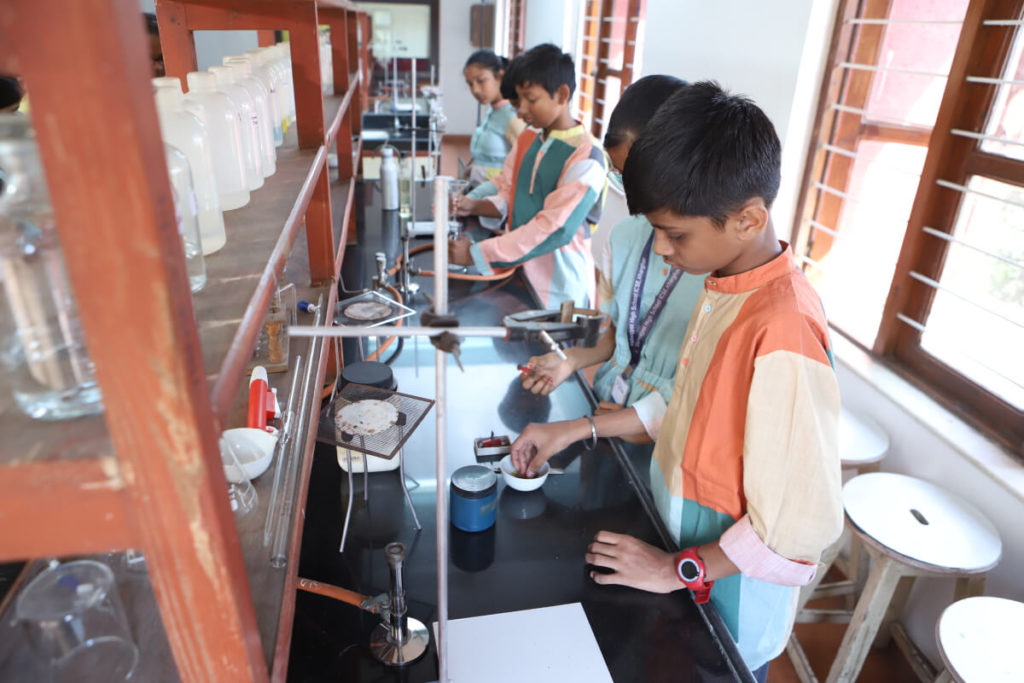Project-based learning (PBL) isn’t just another teaching technique; it’s an immersive, hands-on adventure that sparks curiosity, fosters innovation, imparts vital life and career proficiencies, and prepares us for real-world trials. Research shows PBL has a direct link to a notable enhancement in student exam results, attendance rates, and active classroom involvement. Additionally, it empowers educators to establish more profound connections with their students, taking on the role of a guide for practical learning. Essentially, PBL represents an educational approach where students collaborate and “learn by doing.” The very competencies nurtured through PBL are the ones actively sought by prospective employers.
Here are a few benefits of project based learning in ICSE Curriculum –
Collaboration:
ICSE curriculum is designed to foster through collaboration that forms a significant aspect of PBL. As students engage in group work, they not only enhance their teamwork skills—contributing their insights, attentively listening to peers, and skillfully resolving conflicts—they also cultivate positive connections with their instructors, reinforcing the essence of profound learning. Additionally, students establish bonds with community members while tackling projects, gaining invaluable insights that extend into their career paths and beyond.
Problem-Solving:
Project-based learning equips students with practical problem-solving abilities, addressing issues of personal importance, including genuine community challenges. It empowers them to learn from setbacks, even embracing the prospect of starting anew.
Creativity:
Project-based learning encourages applying creative thinking, prompting students to envision fresh product concepts and project potentials that break new ground and adapt them to active learning.
Comprehensive Comprehension:
ICSE Schools subjects aid in project-based learning. Students refine their research skills and delve deeper into applied subject matter, transcending rote memorization by acquiring an in-depth understanding.
Student centered learning:
PBL allows students to discover their individual voices and nurtures a sense of pride in their work, bolstering their sense of agency and purpose.
Critical Thinking:
PBL cultivates a critical thinking perspective, guiding students to scrutinize problems, pose pertinent questions, and develop viable solutions for their projects.
Persistence:
Within the realm of project work, students learn to adeptly navigate obstacles, learn from missteps, and make necessary adjustments until their endeavours meet their personal satisfaction.
Project Management:
PBL imparts effective project management skills, empowering students with tools to streamline assignments and projects.
Curiosity:
Through PBL, students are free to indulge their interests, exploring questions and kindling a newfound passion for learning.
Empowerment:
PBL instills a sense of ownership in students as they take charge of their projects, engaging in introspection, and rejoicing in their progress and achievements.
In conclusion, project-based learning (PBL) emerges as an educational cornerstone that goes beyond traditional teaching methods. Through collaboration, problem-solving, and creativity, students cultivate skills crucial for their personal and professional growth. PBL offers a unique platform for in-depth comprehension, self-assurance, critical thinking, and perseverance. Moreover, it fosters a spirit of curiosity, empowerment, and connection. As students engage in hands-on experiences, they not only expand their horizons but also lay the foundation for a future enriched by meaningful relationships, adaptable problem-solving capabilities, and an unwavering enthusiasm for lifelong learning. PBL paves the way for holistic development, equipping students with the tools to navigate the complexities of the real world with confidence and purpose.



